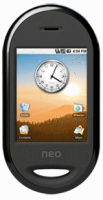Openmoko involves the community in hardware development

Openmoko's Neo FreeRunner.
In April the Openmoko Project announced that after only ten months it was discontinuing production of the Neo FreeRunner phone and after drastic staff reductions would be moving forward with a 'Plan B' product. It seems Plan B has now been revealed as Openmoko is inviting the developer community to not only tinker with the software and the casing design of the open smartphone, but it's also now releasing the hardware design of the FreeRunner (GTA02) for anyone to join in, under the codename gta02-core. The aim is to develop a modified and completely open phone hardware for the FreeRunner within the next six to twelve months.
The Openmoko developers don't intend the result for mass-production. Instead, they want to find out if it is practical to use the community development process for hardware design. They hope, at best, to produce a few functional prototypes. However, if the experiment is successful the next Openmoko smartphone, code named GTA03, whose development was only recently abandoned, could in future be developed in a similar way.
The Openmoko developers are now busy copying the existing circuit diagrams and PCB (printed circuit board) layouts with KiCAD, the free PCB program, and at the same time, incorporating some hardware changes. Even among the Openmoko developers, there still appears to be some dispute about whether KiCAD is the right tool for such a complex board layout as the FreeRunner's. Wolfgang Spraul, head of the Openmoko development department, notes sceptically in his official announcement that KiCAD "may need improvements" to handle the demands of the Openmoko Project.
(crve)
![Kernel Log: Coming in 3.10 (Part 3) [--] Infrastructure](/imgs/43/1/0/4/2/6/7/2/comingin310_4_kicker-4977194bfb0de0d7.png)

![Kernel Log: Coming in 3.10 (Part 3) [--] Infrastructure](/imgs/43/1/0/4/2/3/2/3/comingin310_3_kicker-151cd7b9e9660f05.png)
















